tijd
in
puppet_djt
Культура отмены
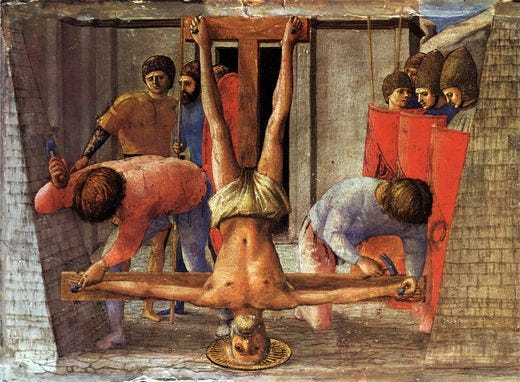
Моральная паника по поводу так называемой "cancel culture" оказывается глупой при ближайшем рассмотрении. Но интересно понять происхождение связанных с этим эмоций.
Дальше следуют полу-философские псевдо-научные рассуждения.
Анатомические особенности вида "гомо сапиенс" дают подсказки об его возможной эволюции. Та особенность, что самцы в среднем крупнее и сильнее самок, могла образоваться в результате иерархичности сообществ у непосредственных предков. Крупные альфа-самцы в результате доминирования над более мелкими оттесняли их от размножения и тем самым способствовали распространению своих генов. Подобные отношения можно наблюдать у животных разных видов, включая близких человеку шимпанзе. У других приматов, к примеру горилл, гендерные различия еще более выраженные.
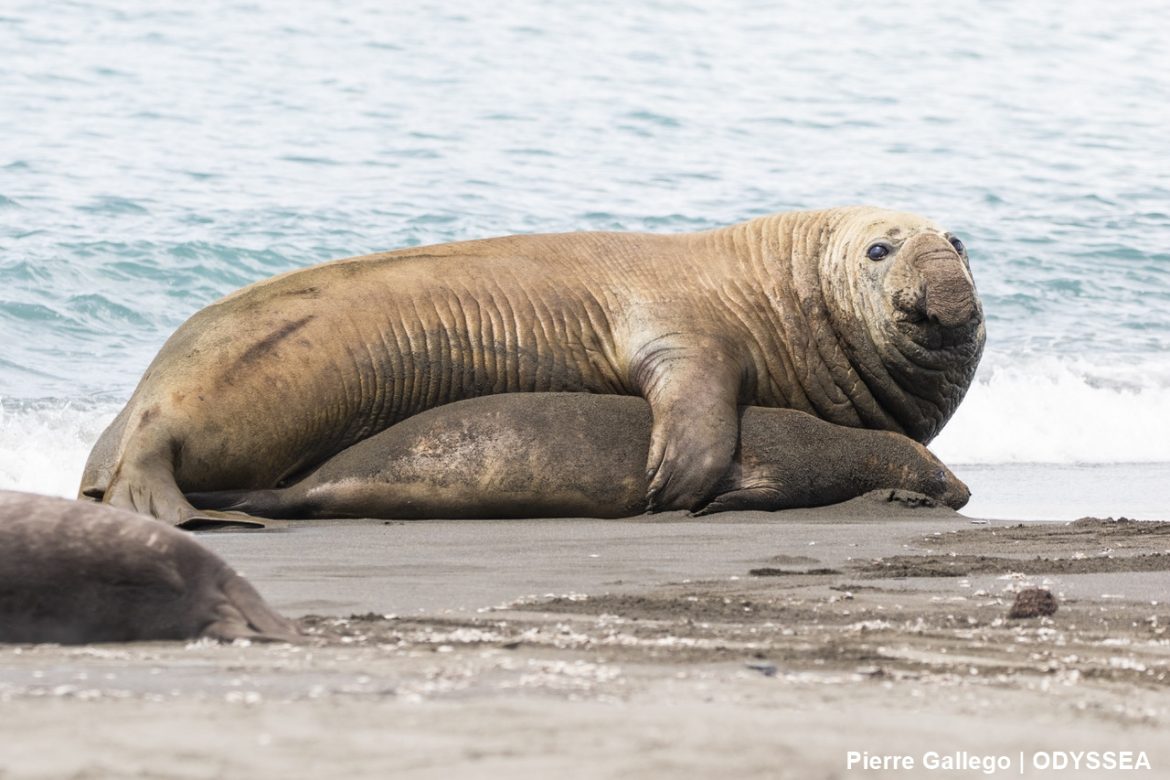
Огромные различия в размерах между самцами и самками у морских слонов коррелирует с особенностями их поведения. В период размножения самцы бьются друг с другом. Победитель (обычно крупнее и сильнее соперников) забирает всех самок из стаи в свой гарем. Проигравшие снуют поблизости и время от времени урывают встречу с оторвавшейся от стаи самкой, но не решаются подойти ближе.

Если бы бета-самцы могли сговориться, они бы сообща одолели узурпатора и создали более эгалитарное общество. То, что не удается сделать морским слонам, получается у людей благодаря владению языковыми средствами коммуникации. Более того, люди изобретают проективное оружие, которое нивелирует преимущества индивидуального размера и силы. В Библии это иллюстрируется историей про Давида и Голиафа.
All primate societies, Boehm notes, are governed by similar dynamics. If any one individual has the opportunity to climb the hierarchy, he or she is likely to seize it; unfortunately, as soon as power is gained, others resent it. In such a society, Boehm writes, there are three potential outcomes. One is conflict, in which newcomers continually and overtly challenge the powerful for a position at the top. Another is stable dominance, where the powerful relentlessly and permanently dominate the rest. And a third is an equally stable social structure which Boehm calls “reverse dominance hierarchy,” in which those on the bottom of the pyramid figure out a way to band together and “deliberately dominate their potential master.” In such a society, dominance is still exercised. It just comes, collectively and consistently, from below.
Chimps, bonobos, and gorillas struggle to achieve stable reverse-dominance hierarchy. They can occasionally flatten their pyramids, but only briefly. The problem is that the powerful are likely to be strong, intelligent, and socially connected. To topple them, and prevent them from taking over again, you need a powerful and persistent threat, which nonhuman primates don’t have. Boehm has discovered that, among the tribal and hunter-gatherer human societies he studies, the development of projectile weapons is a key step in the growth and maintenance of equality: it puts the strong at greater risk from the weak. Such weaponry is one reason that human societies are more equalized than those of other primates.
https://www.newyorker.com/tech/annals-of-technology/when-does-equality-flourish


Теорию о фундаментальном значении "reverse dominance hierarchy" для эволюции человечества развивает приматолог Ричард Рэнгем в книжке "The Goodness Paradox: The Strange Relationship Between Virtue and Violence in Human Evolution". Ввместо того, чтобы вознаграждать агрессивное поведение, как это было, по всей видимости, заведено у их непосредственных предков, люди с некоторого момента своей эволюции начали подвергать подобных особей остракизму и таким образом произвели сами с собой искусственный отбор подобный "одомашниванию", с помощью которого из волков делали собак.
The most well-known experiment on domestication was begun in the late 1950s by the Russian researcher Dmitri Belyaev, who selected against aggressive responses to humans in silver foxes, minks and rats. Within a few dozen generations these species exhibited many of the behavioral traits of domesticated species like dogs. They also began to show physical changes. Fox ears became floppy, and spots of color began to appear. These and other changes are part of a “domestication syndrome” shared across many species. <...>
Mr. Wrangham follows the work of the anthropologist Christopher Boehm, who has suggested that morals emerged as an individual defense against coalitional violence. The way to stay safe in a small human group is to be relentlessly egalitarian. Each person has an incentive to follow a shared moral code because violations give would-be punishers a cause to recruit allies against him.
https://www.wsj.com/articles/the-goodness-paradox-review-good-breeding-11548427524
Парадокс заключается в том, что способность человеческих сообществ к кооперация в целях изгнания тех, кто в сообщество не вписывается способствовало как повышению кооперации и уменьшению агрессивности в историческом времени, так и худшим преступлениям в истории человечества - Холокосту, геноцидам и т.п.
No trait is more disruptive than reactive aggression, which fuels such behaviors as quests for dominance and demands for submission; arrogance, bullying, and random violence; and the monopolizing of food and females. That is a behavioral profile of the alpha male, the arch-reactive aggressor. Communities must either endure such pests or eliminate them. Once humans could communicate (the origin of language can’t be further narrowed down than three hundred thousand to five hundred thousand years ago, but empathy or “shared intentionality” appears to be independent of language and might be sufficient for communication), the die was cast. The origin of domestication, Wrangham proposes, was the group execution of alpha males. Civilization is founded on capital punishment-or, to give it its anthropological name, “coalitionary proactive aggression.”
The executioners were adult males, usually married. (One of alpha males’ most salient offenses was commandeering other men’s wives.) Over time, as alpha individuals were regularly killed and the gene for reactive aggression became less frequent in a population, the coalition of executioners became more stable. Their power was, in effect, absolute-anticipating Max Weber’s famous definition of the state: the agency with a recognized “monopoly of the legitimate use of physical force.” Staying on the right side of these executioners came to seem a matter of life and death (by murder or-what often amounted to the same thing-ostracism). Community members would have welcomed rules that told them which behaviors were dangerous. They would also have cultivated a reputation for beneficence, since antisocial behavior was the original sin. These developments may have given rise to two of the most distinctive features of human morality: our orientation to abstract standards of right and wrong, and our much greater degree of prosociality-altruism, coöperation, fairness, etc.-than is found in other primates.
By making us reflect on the rightness of our actions, capital punishment gave birth to virtue. But in replacing the limited power of the alpha male with the unlimited power of executioners and eventually of the state, Wrangham writes, “coalitionary proactive aggression is responsible for execution, war, massacre, slavery, hazing, ritual sacrifice, torture, lynchings, gang wars, political purges, and similar abuses of power.” That is the book’s constitutive paradox. Planned, coördinated violence gave us a social order that made virtue adaptive. But that social order also made exploitation and oppression possible, either by the state or by favored or powerful subgroups. We are, Wrangham concludes, “the best and worst of species.”
https://www.newyorker.com/books/under-review/did-capital-punishment-create-morality
Как разрешить "goodness paradox"?

Очевидно, что преимущество человека, как вида, заключается в его высокоразвитом мозге и когнитивных способностях. Умение распознавать закономерности в окружающем мире и делать предсказания позволяет людям приспосабливаться к изменениям, принимать правильные решения и изобретать устройства, облегчающие жизнь.
Но мыслительная деятельность затратна. В случае непосредственной опасности нет времени на размышления и гамлетовские сомнения, а требуется быстрое решение по типу «бей или беги». Для этого у человека существуют эмоции и "животные" участки мозга вроде амигдалы, которые способны активизироваться в случае опасности и перехватывать контроль.
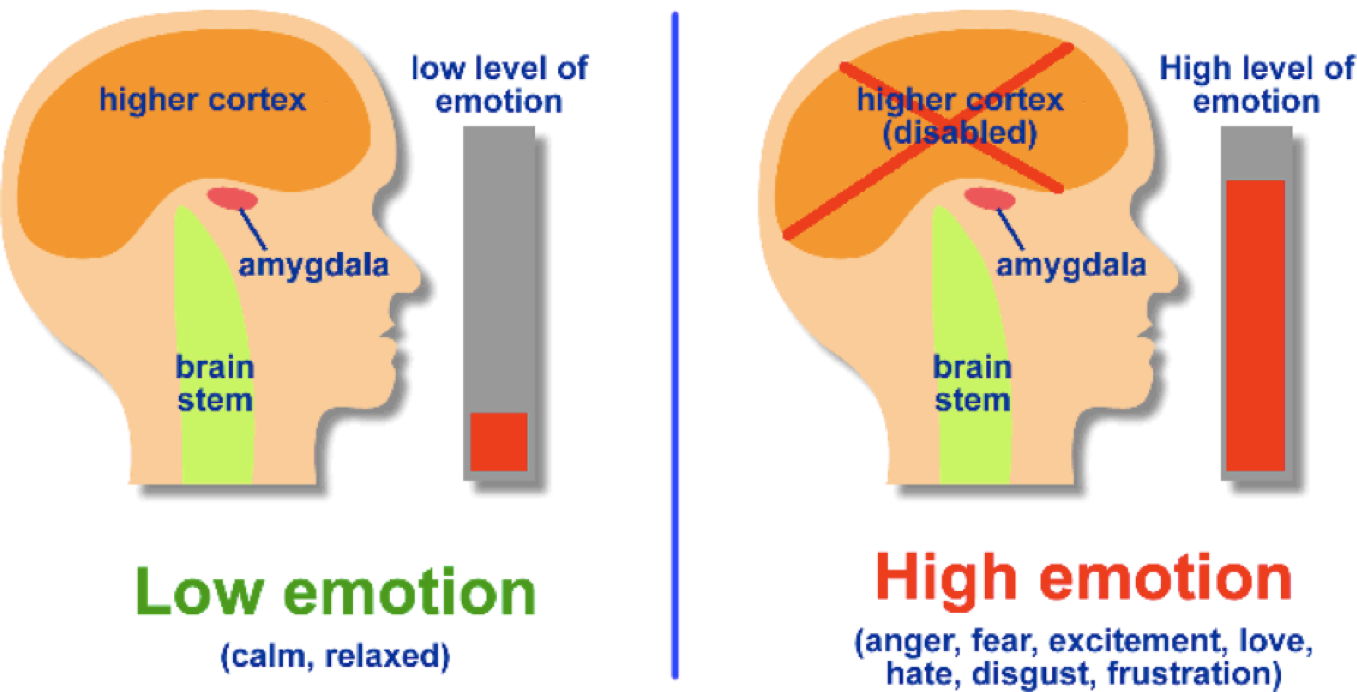
"Животный мозг", питающийся эмоциями вроде страха и ненависти - плохой когнитивный инструмент, потому что, в отличие от коры головного мозга, он вынужден упрощать картину мира и избегать нюансов. Такой мозг способен различать метки свой-чужой, но неспособен к полноценной эмпатии, что затрудняет распознавания мотивов поведения других людей.
Что происходит, когда средний человек, обладающий способностью к эмпатии, пытается распознать поведение лишенного эмпатии социопата? Во-первых, легко совершить ошибку, приписывая тому благородные мотивы. Если же подобная наивность преодолевается, то попытка отзеркалить душевное состояние социопата активизирует свой собственный животный мозг и заражает его эмоциями страха и ненависти, что в свою очередь мешает нормальной когнитивной функции. Как ни крути, остаешься в проигрыше. Поэтому, с точки зрения сохранения совместных когнитивных способностей сообщества, ему имеет смысл просто избавляться от подобных индивидуумов и изолировать их, как зараженных опасным вирусом. В этом и заключается глубинный смысл "cancel culture", включая жертвоприношения прошлого и систему уголовных наказаний настоящего.

В библейском мифе Каин убивает Абеля. Каин - младший брат, но, как фермер и основатель городов, находится на более высоком уровне цивилизации, чем скотовод Абель. Умышленное убийство Абеля таким образом служит первым примером "cancel culture", хотя и без участия коллектива.
Оккультный философ Рене Генон:
Вообще, труды оседлых народов, можно сказать, это труды времени: фиксированные в пространстве, в строго ограниченной области, они развивают свою деятельность во временном континууме, который представляется им бесконечным. Напротив, кочевые и пастушеские народы не создают ничего длительного и не работают ради будущего, которое от них ускользает; но они имеют перед собой пространство, не выдвигающее перед ними никакого ограничения, но напротив, открывающее им постоянно новые возможности. Таким образом, обнаруживается соответствие космическим принципам, с которыми соотносится - в ином порядке - символизм Каина и Авеля: принцип сжатия, представленный временем; принцип расширения, представленный пространством. На самом деле, и тот и другой принципы проявляются сразу и во времени, и в пространстве, как и во всех вещах, что необходимо отметить, чтобы избежать слишком «упрощенческих» уподоблений или отождествлений; но не менее верно, что действие первого преобладает во временных условиях, а второго - в пространственных. Однако время изнашивает, если можно так сказать, пространство, утверждаясь в своей роли «пожирателя» а также в ходе веков оседлые народы мало-помалу поглощают кочевые: в этом, как мы уже указывали выше, социальный и исторический смысл убийства Авеля Каином.
https://www.e-reading.club/chapter.php/85282/22/Genon_-_Carstvo_kolichestva_i_znameniya_vremeni.html

Независимо от приматологов и антропологов, учение о центральной роли принесения в жертву "козлов отпущения" для объединения человеческих сообществ и возникновения культуры развивал Рене Жирар, любимый философ Питера Тиля.
Girard believes that the scapegoat mechanism is the very foundation of cultural life. Natural man became civilized, not through some sort of rational deliberation embodied in a social contract, (as it was fashionable to think among 18th century philosophers) but rather, through the repetition of the scapegoat mechanism. And, very much as many philosophers of the 18th Century believed that their descriptions of the natural state were in fact historical, Girard believes that, indeed, Paleolithic men continually used the scapegoat mechanism, and it was precisely this feature what allowed them to lay the foundations of culture and civilization.
In fact, Girard believes that this process goes farther back in the evolution of Homo sapiens: hominids probably were engaged in scapegoating. But, it was precisely scapegoating what allowed a minimum of communal peace among early hominid groups. Hominids could eventually develop their main cultural traits due to the efficiency of the scapegoat mechanism. The murder of a victim brought forth communal peace, and this peace promoted the flourishing of the most basic cultural institutions.
Once again, Girard takes deep inspiration from Freud, but reinterprets his observations. Freud’s Totem and Taboo presents a thesis that the origins of culture are founded upon the original murder of a father figure by his sons. Girard considers that Freud’s observations were only partially correct. Freud is right in pointing out that indeed, culture is founded upon a murder. But, this murder is not due to the oedipal themes Freud was so fond of. Instead, the founding murder is due to the scapegoat mechanism. The horde murdered a victim (not necessarily a father figure) in order to project upon her all the violence that was threatening the very existence of the community.
https://iep.utm.edu/girard/
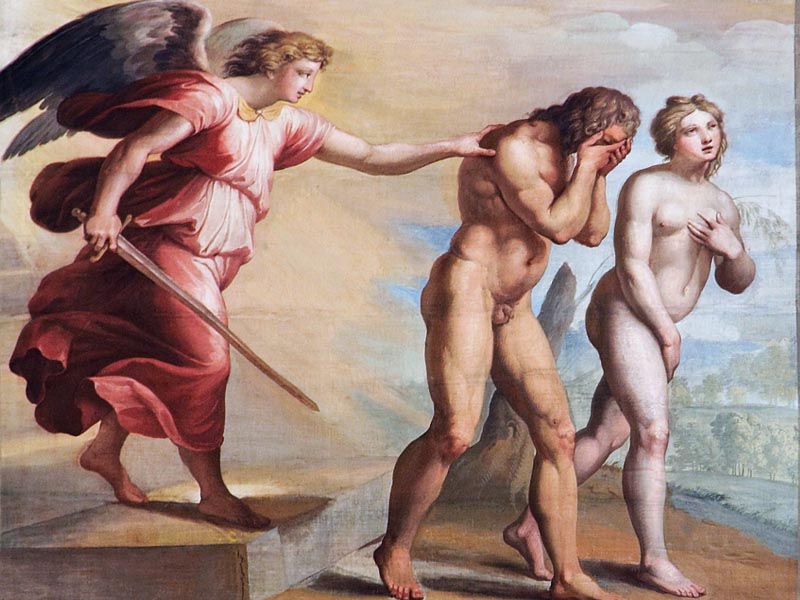
Фундаментальность ритуала жертвоприношения тех, кто не вписывается в сообщество, подтверждается существованием такой эмоции, как стыд. Стыд - страх оказаться изгнанным из сообщества. Как и другие виды страха, он парализует когнитивные способности. В Библии стыд овладевает Адамой и Евой в качестве страха быть изгнанными из рая.
В либеральных обществах ситуация, в которой люди, объединившись, изгоняют неугодных, ассоциируется с выборами или, к примеру, судом присяжных. С другой стороны, "о бщества страха" (тоталитарные и диктаторские режимы) культивируют эмоцию стыда как страха выпадения из общества. Поэтому диссиденты там не просто преследуются, а выставляются на позор и подвергаются "всенародному" осуждению. Таким образом происходит перевертывание изначального смысла ритуала "cancel culture". Правители в таких режимах в свою очередь живут в страхе, что столы будут перевернуты, и они сами окажутся отторгнуты обществом (как это и происходило в истории с отдельными диктаторами).
Как различить оправданное (хотя и не всегда гуманное) избавление общества от людей - носителей вируса примитивных эмоций, и зеркальное ему заражение всего общества, которое начинает истреблять невинных людей, включая целые меньшинства?
Центральную роль в последнем случае играют теории заговора. Механизм "cancel culture" предполагает борьбу слабых против сильного, в которой слабые объединяются для противостояния сильному при помощи языковых коммуникаций. В противоположных случаях, когда сильные, объединяясь, нападают на слабого, они это делают из-за ложного представления о соотношении сил. Ведьмы, сжигаемые на кострах, представлялись обладателями магических сил и союзниками дьявола, а евреи, сжигаемые в газовых печах, представлялись участниками не менее сатанинского сговора " сионских мудрецов". Сталинские репрессии ложились на представление об "обострении классовой борьбы". И т.п.

Для устойчивого возникновения ложной картины мира у отдельного человека его мозг должен переключиться на "животный режим" через эмоции страха. Участие человека в сообществе может играть в этом феномене двоякую роль. Угроза быть изгнанным из сообщества активирует чувство стыда и страха. Если такой угрозы не существует, то участие в сообществе выполняет обратную роль средства избавления от страха. В таком преодолении страха - польза существования национальностей и организованных религий.
Случаи массового помешательства на оторванных от реальности теориях заговора связаны с ситуациями, когда чувство стыда вместо отдельного человека распроняется на все сообщество. Другими словами, активизируется страх угрозы изгнания этого сообщества из числа других сообществ. Подобное происходило с немцами после Первой мировой, южанами США после Гражданской войны и т.п.

В пофобной ситуации средством избавления от страха служит отторжение меньшинств, которые представляются наделенными сверхестественными силами и поддержкой извне. Нечто подобное произошло, как говорят, в древней Иудее, где под давлением стыда от римской оккупации распяли "Царя Иудейского". Из более недавней истории можно вспомнить, как стыд Афганской войны преломился на Первом съезде народных депутатов СССР в травлю Андрея Сахарова.
Если продолжать аналогию с вирусами, то ситуация напоминает аутоимунное заболевание, когда имунная система, предназначенная для борьбы с вирусами, перепутывает цели и начинает уничтожать здоровые ткани.

Закончим рассказом о роли коллективного стыда в американской истории.
Вступление США в ранг мировых держав произошло в конце 19 века во время испанской войны, замешанной на дезинформации, раздуваемой " желтой прессой". Знаменитая речь Теодора Рузвельта "The Strenuous Life" в 1899 призывала к освоению приобретенных на войне заморских территорий и взывала к национальному стыду: Если Америка не займется управлением этих территорий подобно уважающим себя колониальным державам Европы, то останется на обочине истории подобно какому-нибудь ничтожному Китаю.
"We cannot, if we would, play the part of China, and be content to rot by inches in ignoble ease within our borders, taking no interest in what goes on beyond them, sunk in a scrambling commercialism; heedless of the higher life, the life of aspiration, of toil and risk, busying ourselves only with the wants of our bodies for the day, until suddenly we should find, beyond a shadow of question, what China has already found, that in this world the nation that has trained itself to a career of unwarlike and isolated ease is bound, in the end, to go down before other nations which have not lost the manly and adventurous qualities. If we are to be a really great people, we must strive in good faith to play a great part in the world. We cannot avoid meeting great issues. All that we can determine for ourselves is whether we shall meet them well or ill. Last year we could not help being brought face to face with the problem of war with Spain. All we could decide was whether we should shrink like cowards from the contest, or enter into it as beseemed a brave and high-spirited people; and; once in, whether failure or success should crown our banners. So it is now. We cannot avoid the responsibilities that confront us in Hawaii, Cuba, Porto Rico, and the Philippines. All we can decide is whether we shall meet them in a way that will redound to the national credit, or whether we shall make of our dealings with these new problems a dark and shameful page in our history."
https://voicesofdemocracy.umd.edu/roosevelt-strenuous-life-1899-speech-text/
Не все американцы откликались на подобные призывы и были готовы приветствовать для страны новую роль, включая жестокие методы подавления повстанцев на Филиппинах.
Roosevelt and the imperialists found their greatest nemesis in Mark Twain. Twain condemned all efforts by Western nations to carve up the non-Western world. Writing of the Boxer rebellion against Europeans and Americans in China, he declared: “My sympathies are with the Chinese. They have been villainously dealt with by the sceptered thieves of Europe, and I hope they will drive all of the foreigners out and keep them out for good.” Twain’s genius for satire showed in his widely publicized polemics for the anti-imperialist cause. In a 1901 essay for the North American Review, reprinted as a pamphlet by the Anti-Imperialist League, Twain said: “And as for a flag for the Philippine Province, it is easily managed. We can have a special one - our states do it: We can have just our usual flag, with the white stripes painted black and the stars replaced by the skull and crossbones.”
https://www.nytimes.com/2017/01/27/books/review/true-flag-stephen-kinzer.html
Но имидж Рузвельта с его любовью к природе, покорению новых пространств и желанию быть принятым на равных среди других мировых правителей (которое увенчалось Нобелевской премией за мирный договор между Россией и Японией) волновал воображение значительной части избирателей и способствовал его успеху.

Краткое описание Рузвельта от писателя другого поколения, Гора Видала, из эссе "An American Sissy":
"As president TR spoke loudly and carried a fair-sized stick. When Colombia wouldn’t give him the land that he needed for a canal, he helped invent Panama out of a piece of Colombia; and got his canal. He also installed the United States as the policeman of the Western Hemisphere. In order to establish an American hegemony in the Pacific, TR presided over the tail-end of the slaughter of some three million Filipinos who had been under the illusion that after the Spanish-American War they would be free to set up an independent republic under the leadership of Emilio Aguinaldo. But TR had other plans for the Philippines. Nice Mr. Taft was made the governor-general and one thousand American teachers of English were sent to the islands to teach the natives the sovereign’s language. <...>
Theodore Roosevelt was a classic American sissy who overcame-or appeared to overcome-his physical fragility through “manly” activities of which the most exciting and ennobling was war."
https://www.nybooks.com/articles/1981/08/13/an-american-sissy/?
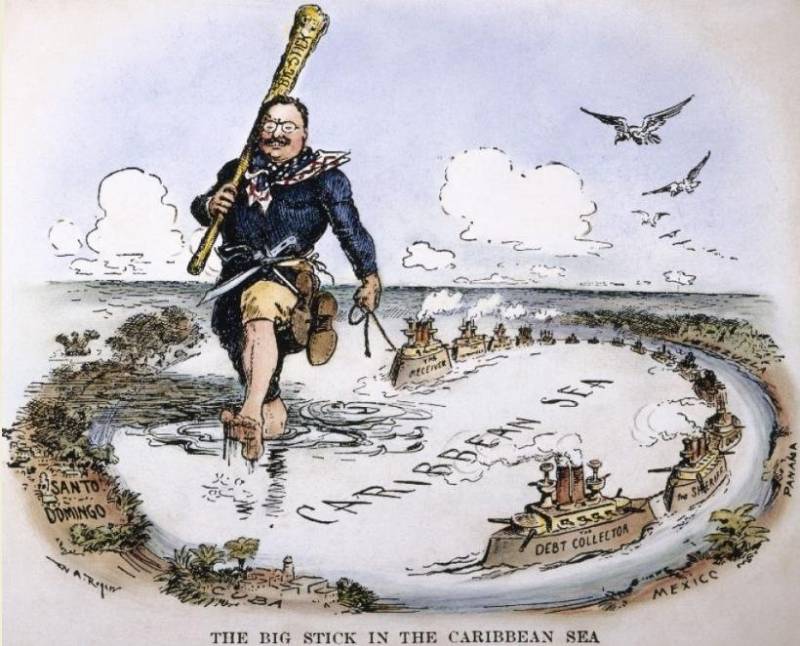
Личным успехом Тедди Рузвельта на посту президента стал Панамский канал. Рузвельт был двадцать шестым американским президентом, но стал первым президентом, покинувшим пределы страны во время своего правления - для поездки в Панаму. Панамская республика, как и пишет Видал, была аккуратно отжата от Колумбии для того, чтобы осуществить инженерный проект особо крупного масштаба.
In his first State of the Union address in 1902, President Roosevelt made it clear that the canal was a top priority for his administration.
“No single great material work which remains to be undertaken on this continent is of such consequence to the American people as the building of a canal across the Isthmus connecting North and South America,” he told Congress. “It is emphatically a work which it is for the interest of the entire country to begin and complete as soon as possible; it is one of those great works which only a great nation can undertake with prospects of success, and which when done are not only permanent assets in the nation’s material interests but standing monuments to its constructive ability.”
In 1903, the United States supported a bloodless revolution in the Colombian province of Panama after the Colombian government rejected a U.S. treaty to acquire land in Panama to build the canal. The United States Senate offered $10 million for the land; the Colombian government wanted $25 million.
As the Colombian government sent troops to put down the rebellion, a U.S. warship, the Nashville, appeared with a contingent of Marines off the Panamanian coast, along with other U.S. naval vessels. The next day, Panama declared independence and Roosevelt quickly recognized Panama as a Republic and offered it protection.
Philippe Bunau-Varilla, a French citizen, acted as Panama’s agent and negotiated a new canal treaty with Secretary of State John Hay, which was ratified by the Senate in February 1904. The United States government gave the $10 million offered to Colombia to the Panamanians as part of a new treaty. It also supplied a constitution to Panama that gave the American government the right to “intervene in any part of Panama, to reestablish public peace and constitutional order.”
The President’s actions didn’t go unopposed back home, with some calling it “an act of sordid conquest.” But the United States started its Panama Canal project that year. The 10-year endeavor cost $375 million and 5,609 lives, and to many it became the new symbol of American imperial power.
https://constitutioncenter.org/interactive-constitution/blog/the-panama-canal-still-symbolizes-executive-power

Вопрос о Панамском канале всплыл в 1970ых. На волне антиколониального движения назрел вопрос о признании суверенитета Панамы и заключении договоров с Панамой, как независимой страной. Обсуждением вопроса занималось несколько президентских администраций до этого, но в 1977, после прихода к власти Джимми Картера, он решил сделать заключение и ратификацию таких договоров первым делом своей международной политики. Вопрос был принципиальным - уважение прав маленькой страны продемонстрировало бы другим странам моральной подход к международной политике и отказ от империалистических амбиций.
Картер добился своего - договор был заключен в 1977, а в 1978 получил необходимые для ратификации 2/3 голосов в Сенате. Его поддержка казалась во всех отношениях логичной: за ратификацию были и бывший президент Форд, и умеренные республиканцы, включая Говарда Бейера, лидера республиканского меньшинства в Сенате, и лидеры консервативного движения вроде Билла Бакли, и Пентагон, и бизнес-сообщество, и разнообразные эксперты.

Но Картер не учел эмоциональной составляющей. Коллективный стыд от вьетнамской войны порождал у определенной прослойки как расисткую тоску о доминировании "белого человека", так и теории заговора о "еврейских банкирах", который втыкали нож в спину стране и ослабляли ее в угоду мировому правительству в тайном сговоре с марксистами. Для параноидальных питомцев John Birch Society, стекающихся в это время в Council for National Policy, вопрос "Панамский канал наш" обретал эмоциональную окраску.
На юге страны у консервативного движения в это время вырастала вторая голова, так называемые "New Right". Политтехнологи из окружения сенатора Джесси Хелмса оснащали ее техническими средствами в виде массовых почтовых рассылок. Во время республиканских праймериз избирательной кампании 1976 Рональду Рейгану удалось оседлать эту гидру.
Late in March 1976, his campaign for the presidential nomination was on the rocks. He had lost five straight primaries. The campaign was broke. Nancy Reagan was urging her husband to drop out, and his campaign manager, John Sears, was negotiating with President Gerald Ford’s camp about Mr. Reagan’s withdrawal.
With his back to the wall, Mr. Reagan campaigned intensely on the canal issue in the Republican primary in North Carolina. “We bought it. We built it. We paid for it,” he would say, and Panama should be told that “we intend to keep it.”
Mr. Reagan emphasized that message on the stump and on television. Fifteen of the state’s 17 television stations carried a half-hour speech that stressed the importance of the canal. And he startled the Ford campaign, friends like William F. Buckley and himself by winning North Carolina.
He continued to campaign on the issue in Texas, where Mr. Reagan won all the delegates, and in other Southern states. Mr. Reagan ultimately lost, very narrowly, to Mr. Ford at the Republican convention in Kansas City, Mo. But he won the convention’s heart and became the front-runner for the 1980 Republican presidential nomination.
https://www.nytimes.com/2008/03/15/opinion/15clymer.html
Продолжая выступать против договора с Панамой, Рейган с честью проходил лакмусовый тест "New Right", что помогло ему в итоге с их поддержкой одержать сокрушительную победу на выборах 1980.
На теледебатах в январе 1978 Рейган срывает бурные аплодисменты аудитории, рассуждая о национальном позоре оказа от политики доминирования:
Reagan: I think, if anything, we would become a laughing-stock by surrendering to unreasonable demands. And by doing so, I think we cloak weakness in the suit of virtue.
This has to be treated in the whole area of the international situation. The Panama Canal is just one facet of our foreign policy. And what do we do to ourselves in the world and to our allies? Will they, as Mr. Buckley says, see that as the magnanimous gesture of a great and powerful nation? I don't think so, not in view of our recent history, not in view of our bug-out in Vientnam, not in view of an administration that is hinting that we're going to throw aside an ally named Taiwan. There are other things that we're doing. Our policy in Africa.
I think that the world would see it as, once again, Uncle Sam put his tail between his legs and crept away rather than face trouble. [Applause.]
https://www.washingtonpost.com/archive/politics/1978/01/24/the-canal-debate/43b772f5-beab-48ba-bb43-25aa5782302a/

Репортаж из 1977:
Throughout the propaganda attack on the proposed treaty runs the theme of national retreat, even surrender. Some political analysts believe that this represents an unhappy legacy from the war in Vietnam, They theorize that many Americans feel an unconscious sense of shame over the United States defeat before the eyes of the world and are unwilling to accept what they regard as another retreat.
With such voters, the argument goes, President Theodore Roosevelt, who “took” the Canal Zone from Colombia in 1903, remains a popular hero. They tend to have no sense of guilt about the historical fact that the United States obtained its rights in the canal zone in the first place by a combination of international adventurism and thinly veiled blackmail.
Indeed, from its highly dubious beginning, the Panama Canal has been a source of national pride. The fact that the United States encouraged the revolt against Colombia that created Panama and then cozened that insecure infant nation into a one‐sided treaty did not seem to concern Americans at the turn of the century, still basking in the warm glow of the doctrine of manifest destiny. Moreover, construction of the canal was regarded as a triumph of American engineering genius, despite a high toll in Panamanian lives.
Military flexibility was a major motivating force behind the canal from the inception of the idea; it took the Navy days to get the battleship Oregon from San Francisco to Cuba in 1898, and it almost missed the Spanish‐American War altogether. The canal's World War II role in speeding the Atlantic Fleet to the Pacific after VE Day impressed thousands of servicemen who are now members of the electorate.
Some social historians believe Americans tend to exhibit a highly‐developed sense of the territorial imperative, the psychological need to control property, once acquired, even though that property is in Central America or Southeast Asia, together with a corresponding deep‐seated reluctance to withdraw on any front.
https://www.nytimes.com/1977/09/04/archives/the-treaty-will-be-signed-this-week-panama-arouses-emotion-out-of.html
Репортаж из 1978:
To many right‐wingers, the canal treaties offer a chance to vent the deep frustration they feel about the whole range of American foreign policy since the Vietnam war.
“Basically this is an issue of national pride,” said Fran Griffin, an official of the American Conservative Union. “The world always seems to be taking advantage of our generOsity, and this is another example of it.”
Paul Weyrich of the Committee for the Survival of a Free Congress said: “We have the feeling that we are retreating in the world and becoming a second‐rate power.”
Accordingly, conservative groups are using the canal issue to raise money and attract support that can then be funneled into other political activities. “I think this issue is a door opener,” said Mr. Weyrich, whose group supports conservative candidates for Congress. “I view it as a means of enlarging our constituency.”
The Conservative Caucus, for instance, has sent out almost two million letters since last March and raised more than $800,000, according to Howard Phillips, its director. The money has financed workshops and demonstrations in all 50 states generating opposition to the treaties, as well as television and newspaper advertising.
The American Conservative Union, which has raised about $600,000, has produced a half‐hour film about the canal treaties that has run on television stations in more than 30 states. These two groups, plus several others, are also sponsoring a “truth squad” of conservative speakers who are traveling around the country this week denouncing the treaties.
An argument has roiled Republican ranks since Ronald Reagan, who first made/the canal a public issue, signed a fund‐raising appeal on behalf of the Republican National Committee. Bill Brock, the Republican chairman, now refuses to use the money for antitreaty activities, and Mr. Reagan and his friends are crying foul.
Many of the antitreaty mail campaigns have been masterminded by Richard C. Viguerie, an aggressive entrepreneur who raises money for many right‐wing causes.
https://www.nytimes.com/1978/01/20/archives/panama-treaties-at-stake-in-bitter-propaganda-war-unfair-tactics.html
Современный анализ:
Historians have contended that ratification constituted a Pyrrhic victory for the Carter administration. Carter had hoped that the ratification of the treaties would shore up his political capital, but the opposite occurred: because of the tenacity of the opposition, the treaty fight proved to be long, brutal, and costly. The political capital expended during the fight set the stage for future defeats rather than triumphs for Carter. But the victory proved Pyrrhic in other ways. Although the antitreaty campaign failed to halt ratification, it represented a victory for New Right groups, who were able to forge alliances, expand membership, and hone tactics. Activists recognized that because it tapped into deep concerns about the world position of the United States after Vietnam, the canal issue could have a catalyzing effect on the conservative movement and augment its influence within the Republican party. As American Conservative Union leader Gary Jarmin explained, “It’s not just the issue itself we’re fighting for. This is an excellent opportunity for conservatives to seize control of the Republican Party.”
https://academic.oup.com/dh/article-abstract/35/3/535/397593
Таким образом эхо комплекса неполноценной державы из конца девяднацатого века докатилось до переломного 1980 года, чтобы войти в резонанс с новым коллективным стыдом. Вспаханные мастерами политтехнологии, эти эмоции определили историческую траекторию страны и мира на следующие 40 лет.